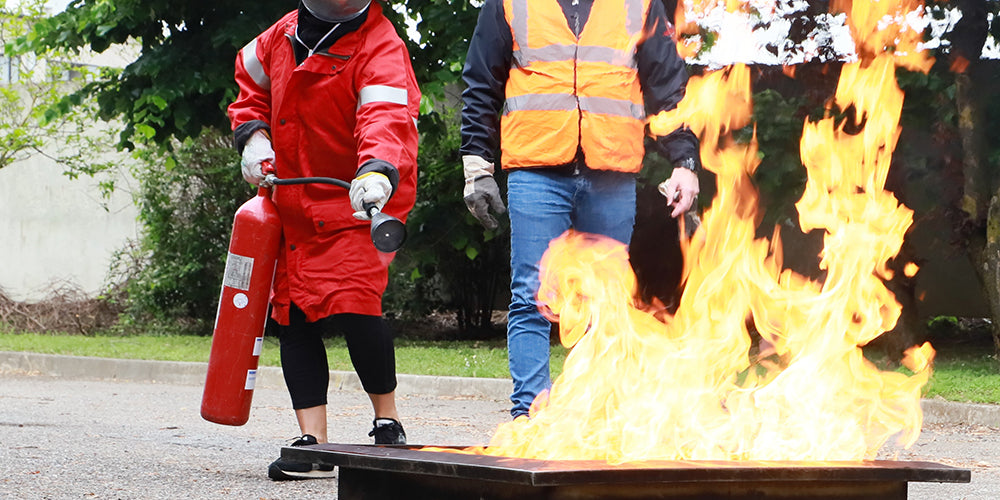You have no items in your shopping basket.
Recording and reporting (social care) eLearning courses
Ensuring excellence: The vital role of effective recording and reporting in UK social care settings
Rose Mabiza
17-04-2024
In the intricate tapestry of social care, where every thread represents a life touched by compassion and support, effective recording and reporting serve as the sturdy framework that upholds the integrity and quality of care delivery. In the United Kingdom, where the welfare of vulnerable individuals is paramount, the importance of meticulous documentation cannot be overstated. In this blog, Rose Mabiza delves into the significance of effective recording and reporting in UK social care settings, exploring its key components, relevant legislation, and best practices.
Key facts and statistics
- According to a Care Quality Commission (CQC) report, inadequate recording and reporting contributed to nearly 30% of social care service failures.
- A study published in the Journal of Social Work found that accurate documentation significantly improves communication among care team members, leading to better coordination and outcomes for service users.
- The Health and Social Care Information Centre reported that over 80% of social care professionals identified recording and reporting as one of the most challenging aspects of their role.

Image by Rawpixel via Envato Elements

Image by seventyfourimages via Envato Elements
Key definitions
- Recording and reporting (social care) - The systematic documentation and communication of information pertinent to the care and support provided to individuals within social care settings.
- Confidentiality - The ethical and legal obligation to protect individuals' privacy and sensitive information receiving care services.
- Data protection - Legislation and regulations governing the collection, storage, processing, and sharing of personal data within social care settings, including the GDPR in the UK.
Relevant legislation, regulations, and best practices
- Health and Social Care Act 2008 - Sets out the regulatory framework for social care provision in the UK, including requirements for robust recording and reporting systems.
- General Data Protection Regulation (GDPR) - Establishes principles for the lawful processing of personal data, ensuring individuals' rights to privacy and data protection.
- Care Quality Commission (CQC) Standards - Regulations and guidance issued by the CQC assesses social care services' compliance with recording and reporting standards.

Image by dvatri via Envato Elements

Image by Media_photos via Envato Elements
Unlocking success - Recording and reporting best practices in social care
The foundation of quality care
Effective recording and reporting form the cornerstone of quality care provision in social care settings. Care providers ensure continuity of care, accountability, and compliance with legal and regulatory requirements by accurately documenting assessments, interventions, and outcomes. Clear and comprehensive documentation enables care teams to understand individuals' needs, preferences, and progress, facilitating personalised and coordinated care delivery.
Navigating the legal landscape
Organisations must navigate the complex maze of legislation and regulations governing social care with precision. The Health and Social Care Act 2008 outlines care providers' duty to maintain accurate records of care provision, while the GDPR mandates the secure handling of personal data. Adherence to standards set by regulatory bodies like the CQC is essential to ensure that recording and reporting practices meet industry benchmarks.
Best practices for excellence
To achieve excellence in recording and reporting, organisations must implement best practices that prioritise accuracy, confidentiality, and transparency. This includes developing clear policies and procedures, providing comprehensive staff training, and utilising technology to streamline documentation processes. Regular audits and quality assurance measures are essential for continuous improvement and compliance with evolving standards.
Recommendations
- Invest in accredited training courses, such as those offered by The Mandatory Training Group, to ensure staff have the necessary knowledge and skills for practical recording and reporting.
- Establish robust policies and procedures that align with relevant legislation and best practice guidelines, ensuring consistency and adherence to standards.
- Foster a culture of accountability and transparency, where staff understand the importance of accurate documentation and feel empowered to raise concerns or seek support when needed.

Image by halfpoint via Envato Elements

Image by dvatri via Envato Elements
Conclusion
In the intricate web of social care, where every interaction holds the potential to change someone's life profoundly, effective recording and reporting serve as the guiding light that illuminates the path to excellence. By prioritising accuracy, confidentiality, and compliance with legislation and best practices, organisations can uphold the highest standards of care provision and honour the dignity and well-being of those they serve.
Are you ready to elevate your organisation's recording and reporting practices to new heights of excellence? Explore our accredited training courses and embark on a journey towards quality care provision today.
In the intricate tapestry of social care, where every thread represents a life touched by compassion and support, effective recording and reporting serve as the sturdy framework that upholds the integrity and quality of care delivery. In the United Kingdom, where the welfare of vulnerable individuals is paramount, the importance of meticulous documentation cannot be overstated. In this blog, Rose Mabiza delves into the significance of effective recording and reporting in UK social care settings, exploring its key components, relevant legislation, and best practices.
Key facts and statistics

Image by Rawpixel via Envato Elements
- According to a Care Quality Commission (CQC) report, inadequate recording and reporting contributed to nearly 30% of social care service failures.
- A study published in the Journal of Social Work found that accurate documentation significantly improves communication among care team members, leading to better coordination and outcomes for service users.
- The Health and Social Care Information Centre reported that over 80% of social care professionals identified recording and reporting as one of the most challenging aspects of their role.
Key definitions

Image by seventyfourimages via Envato Elements
- Recording and reporting (social care) - The systematic documentation and communication of information pertinent to the care and support provided to individuals within social care settings.
- Confidentiality - The ethical and legal obligation to protect individuals' privacy and sensitive information receiving care services.
- Data protection - Legislation and regulations governing the collection, storage, processing, and sharing of personal data within social care settings, including the GDPR in the UK.
Relevant legislation, regulations, and best practices

Image by dvatri via Envato Elements
- Health and Social Care Act 2008 - Sets out the regulatory framework for social care provision in the UK, including requirements for robust recording and reporting systems.
- General Data Protection Regulation (GDPR) - Establishes principles for the lawful processing of personal data, ensuring individuals' rights to privacy and data protection.
- Care Quality Commission (CQC) Standards - Regulations and guidance issued by the CQC assesses social care services' compliance with recording and reporting standards.
Unlocking success - Recording and reporting best practices in social care

Image by Media_photos via Envato Elements
The foundation of quality care
Effective recording and reporting form the cornerstone of quality care provision in social care settings. Care providers ensure continuity of care, accountability, and compliance with legal and regulatory requirements by accurately documenting assessments, interventions, and outcomes. Clear and comprehensive documentation enables care teams to understand individuals' needs, preferences, and progress, facilitating personalised and coordinated care delivery.
Navigating the legal landscape
Organisations must navigate the complex maze of legislation and regulations governing social care with precision. The Health and Social Care Act 2008 outlines care providers' duty to maintain accurate records of care provision, while the GDPR mandates the secure handling of personal data. Adherence to standards set by regulatory bodies like the CQC is essential to ensure that recording and reporting practices meet industry benchmarks.
Best practices for excellence
To achieve excellence in recording and reporting, organisations must implement best practices that prioritise accuracy, confidentiality, and transparency. This includes developing clear policies and procedures, providing comprehensive staff training, and utilising technology to streamline documentation processes. Regular audits and quality assurance measures are essential for continuous improvement and compliance with evolving standards.
Recommendations

Image by halfpoint via Envato Elements
- Invest in accredited training courses, such as those offered by The Mandatory Training Group, to ensure staff have the necessary knowledge and skills for practical recording and reporting.
- Establish robust policies and procedures that align with relevant legislation and best practice guidelines, ensuring consistency and adherence to standards.
- Foster a culture of accountability and transparency, where staff understand the importance of accurate documentation and feel empowered to raise concerns or seek support when needed.
Conclusion

Image by dvatri via Envato Elements
In the intricate web of social care, where every interaction holds the potential to change someone's life profoundly, effective recording and reporting serve as the guiding light that illuminates the path to excellence. By prioritising accuracy, confidentiality, and compliance with legislation and best practices, organisations can uphold the highest standards of care provision and honour the dignity and well-being of those they serve.
Are you ready to elevate your organisation's recording and reporting practices to new heights of excellence? Explore our accredited training courses and embark on a journey towards quality care provision today.
About the author
Dr Richard Dune

With over 20 years of experience, Richard blends a rich background in NHS, the private sector, academia, and research settings. His forte lies in clinical R&D, advancing healthcare tech, workforce development and governance. His leadership ensures regulatory compliance and innovation align seamlessly.
Related blog articles
View allContact us
Complete the form below to start your ComplyPlus trial and transform your regulatory compliance solutions.







